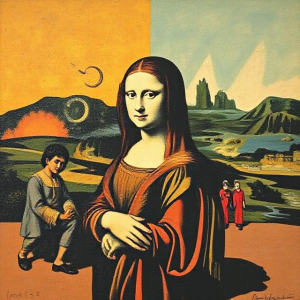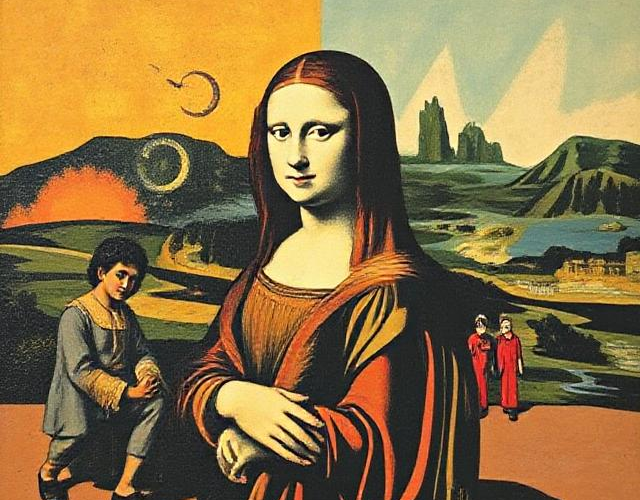First off, let’s talk about Impressionism. Imagine standing in a sunlit garden, the colors vibrantly dancing around you. This movement, which swept through the late 19th century, challenged the norms by focusing on light and everyday subjects. Artists like Monet and Renoir captured fleeting moments, almost like snapshots of life, and invited viewers to see the world through their eyes.
Next, we have Cubism, introduced by Picasso and Braque. It’s like breaking down a scene into geometric shapes and reassembling it in a way that baffles and intrigues the mind. Cubism tells us that reality isn’t one-dimensional; it’s a complex puzzle waiting to be solved. It encourages us to view objects from multiple angles—all at once.
Then we can’t forget Surrealism, a wild ride into the subconscious. With artists like Salvador Dalí leading the charge, this movement takes dreamlike imagery and knots it together with the bizarre. It feels like stepping into someone’s vivid dream—or perhaps a strange nightmare—where the impossible becomes reality.

And what about Abstract Expressionism? Picture a vast canvas filled with chaotic swirls of color, each stroke conveying deep emotion. This movement celebrates freedom of expression and invites personal interpretation. Artists such as Jackson Pollock threw realism to the wind, encouraging everyone to find their own meaning in the chaos.
The Influence of Movements Like Impressionism and Surrealism
Then comes Surrealism, a movement that took imagination to dizzying heights. It tossed aside the mundane, plunging into the depths of dreams and subconscious thoughts. Surrealists like Salvador Dalí and André Breton challenged our perceptions, creating art that’s both perplexing and captivating. Have you ever stared at a melting clock and wondered about the nature of time? This is what Surrealism excels at—it’s like diving into the depths of your mind where logic bends, and reality blurs. It’s a whimsical wonderland where your wildest dreams and nightmares intermingle, compelling us to confront our deepest thoughts.
Together, these movements didn’t just revolutionize the canvas; they stirred a cultural shift. They encouraged us to look beyond the surface of things—just like peeling back the layers of an onion, revealing the emotional and psychological complexities beneath. The Influence of Movements Like Impressionism and Surrealism lingers today, inspiring artists and viewers alike to embrace their unique visions and explore the uncharted territories of their imagination. Isn’t it amazing how art captures the essence of humanity and invites us to dream?
How They Shaped Modern Art
Imagine walking into a gallery where traditional rules are thrown out the window. You might see a canvas splattered with vibrant paint, a sculpture made from everyday objects, or even a piece that makes you question “What is art, anyway?” These revolutionary thinkers turned art into a conversation, rather than just a spectacle. They asked us to look beyond the surface and explore what lies beneath—much like peeling an onion, each layer revealing something deeper.
The influence of these pioneers can be felt everywhere today. When you scroll through Instagram and see those visually arresting posts, many of them pay homage to that fearless spirit of exploration. Street art? You can thank Keith Haring and Banksy for that. Digital art? That’s a nod to the innovative trends started by those avant-garde souls.
Every brush stroke, every abstract form, every unconventional material used speaks volumes about freedom of expression. So, the next time you’re gazing at a piece that stops you in your tracks, take a moment to appreciate the legacies that paved the way. The truth is, modern art is a vibrant tapestry woven from the threads of courage, imagination, and the relentless pursuit of pushing boundaries. It’s a testament to how a handful of audacious artists shaped an entire era, transforming the way we perceive and interact with art today.

























Add comment